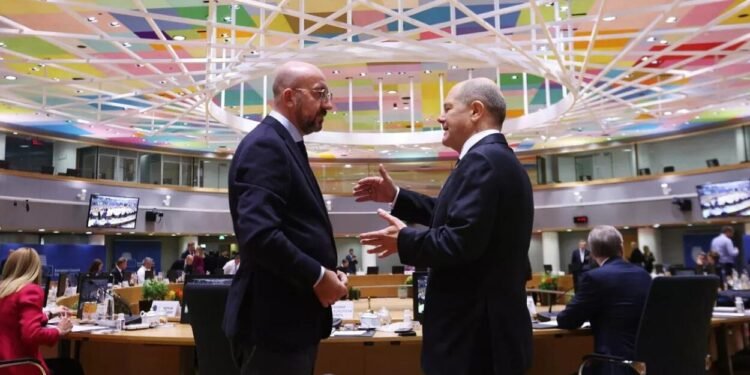Brussels (Brussels Morning) – European Council convenes for a special two-day summit in Brussels focusing on economic competitiveness, overshadowed by crises in the Middle East and tensions with Iran and Turkey.
The European Council will hold an exceptional meeting today and tomorrow, and the schedule includes subjects of support for Ukraine, ties with Turkey, the crisis in the Middle East, the state of the European economy,
European Union leaders are assembling in Brussels for a special two-day summit concentrated on the bloc’s economic competitiveness. However, according to the experts, the agenda is set to be surpassed by the ongoing crisis in the Middle East, which the West worries could soon spiral out of control and shift into a wider regional conflict. The EU has vowed to tighten sanctions on Iran but calling on Israel to sidestep a new attack that would further fan the flames.
How significant is the Middle East crisis in the Council Agenda?
The first day of the session, set to start on Wednesday evening after a reception with the King of Belgium, will touch upon the continued situation in Israel, Iran, the Gaza Strip and Lebanon, as well as the war in Ukraine and relations with Turkey.
What actions are being taken on Iran?
“The European Council calls on Iran and its proxies to cease all attacks and urges all parties to exercise the utmost restraint and to refrain from any action that may increase tensions in the region,” reads a draft interpretation of the conclusions, as reported by Euronews.
How is the EU addressing Lebanon’s stability?
Diplomats fear Lebanon, home to 1.5 million Syrian refugees, could be pulled into the conflict and trigger a migration exodus towards EU shores, which is already observable in nearby Cyprus. The island state has registered more than 2,000 arrivals in the first three months of this year, a huge growth compared to the 78 seen in the same period of 2023.
According to Euronews, the draft conclusions highlight the EU’s obligation to Lebanon’s stability and “determination to sustain the most vulnerable people” in the country but make no explicit reference to the migratory stress placed on Cyprus. The language, though, could be squeezed as discussions start on Wednesday evening.
What’s the EU’s stance on the Gaza conflict?
Additionally, leaders are anticipated to echo the recent UN Security Council resolution and call for an “immediate ceasefire” in Gaza, where more than 33,000 people have been massacred since the beginning of the Israeli offensive. The European Council will urge the “unconditional release of all hostages” held by Hamas and the “full, rapid, safe and unhindered” provision of humanitarian assistance for Palestinians.
The foreign policy discussions will also examine the current state of EU-Turkey ties, which remain a strategic focus for all leaders despite the strain induced by accusations of sanctions evasion, democratic backsliding and the decades-long conflict with Cyprus. Speaking on condition of anonymity, a senior diplomat revealed that Turkey is a “vital question” for Cyprus but cautioned that relations with the bloc should not be seen only through that lens. “There’s more to that,” the diplomat noted.
Is Ukrainian President Zelenskyy addressing the summit?
Wednesday will also feature a virtual address by Ukrainian President Volodymyr Zelenskyy, who recently criticised the West for failing to safeguard Ukrainian skies from Russian strikes, as they did in Israel in reaction to Iran’s attack. In the first weeks of the attack, Kyiv pleaded with NATO to set a “no-fly zone” over the battered country but the proposal was repeatedly ignored, as allies claimed the military intervention threatened to trigger Article 5 of collective defence and an all-out confrontation with Russia.
“European skies could have acquired the same level of security long ago if Ukraine had received similar full aid from its partners in intercepting drones and missiles. Terror must be defeated completely and everywhere, not more in some areas and less in others,” Zelenskyy said on social media.




